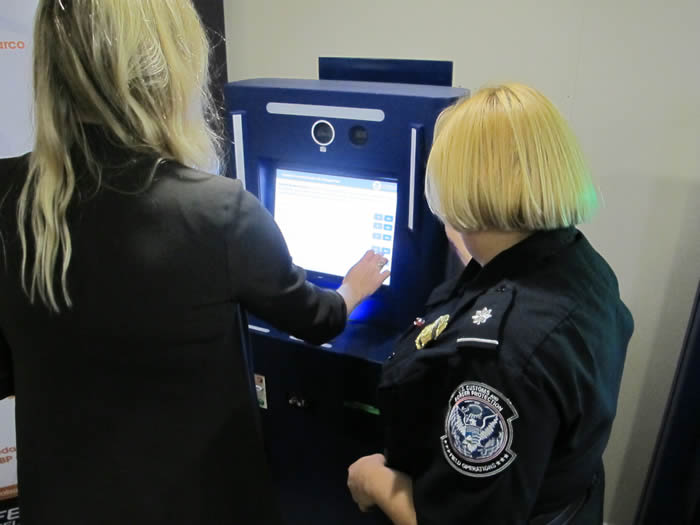World Border Security Congress2018-02-02 13:50:32
CBP Announces First Automated Passport Control System on Board a Ferry Vessel
U.S. Customs and Border Protection (CBP) announced Friday, along with the vessel operator of Ferries del Caribe , the implementation of the first Automated Passport Control (APC) System on board the San Juan-Santo Domingo ferry.
The formal announcement was made on Jan. 26 at the Pan American Dock in San Juan, with participation from leadership of America Cruise Ferries, parent company of Ferries del Caribe, and representatives from the Commonwealth of Puerto Rico’s Department of State, Department of Economic Development, Tourism Company and Port Authority.
“APC’s have been adopted at international airports around the Nation providing travelers shorter wait times, less congestion, and faster processing,” indicated Edwin Cruz, Area Port Director. “With this APC on board the ferry, passenger clearance is facilitated in such a complex operation while sustaining our security standards.”
The APC is a program that expedites the entry process for U.S. citizens, U.S. legal permanent residents, Canadian citizens, Visa Waiver Program eligible international travelers, and travelers entering with a B1/B2 or D visa, by providing an automated process through CBP’s Primary Inspection area.
Travelers use self-service kiosks to respond to CBP inspection related questions and submit biographic information. APC is a free service, does not require pre-registration or membership, and maintains the highest levels of protection when it comes to the handling of personal data or information.
People scan their passport and submit answers to the custom’s declaration in the kiosk. This Information is collected and compiled by the site server and transferred to a secure server on the CBP network for a quick response. A receipt is then printed from the kiosk which the traveller takes to a CBP Officer upon arrival who verifies the document and makes the final approval to allow a traveller into the country.
CBP maintains a strict security protocol for any system that collects or contains personally identifiable information (PII) including meeting all privacy requirements. No information is stored on or shared by the site server/kiosk.
APC kiosks onboard the M/V Kydon are developed by Innovative Travel Solutions, an independent business unit within Vancouver International Airport (YVR). These particular BorderXpress kiosks were configured to meet the immigration needs of CBP for Ferries del Caribe. The ferry navigates between the ports of San Juan, Puerto Rico and Santo Domingo, Dominican Republic, transporting passengers, vehicles and cargo, three times a week.
During the announcement, America Cruise Ferries, shared that two of its strategic business units, Marine Express and Priority Ro Ro, became part of the Customs-Trade Partnership Against Terrorism (C-TPAT) a voluntary public-private sector partnership program which recognizes that CBP can provide the highest level of cargo security only through close cooperation with the principle stakeholders of the international supply chain such as importers, carriers, consolidators, licensed customs brokers, and manufacturers.
When an entity joins CTPAT, an agreement is made to work with CBP to protect the supply chain, identify security gaps, and implement specific security measures and best practices. Applicants must address a broad range of security topics and present security profiles that list action plans to align security throughout the supply chain.
Learn more about CBP at CBP.gov.
